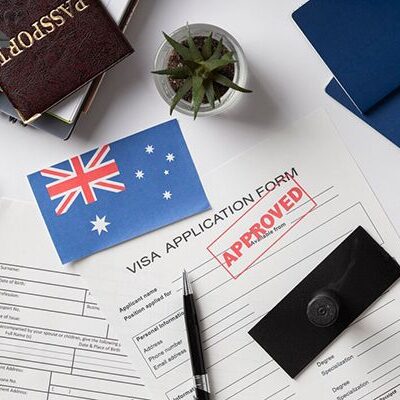Canada is known for its inclusive immigration policies, world-class healthcare system, and multicultural society. Many individuals are curious about pathways to permanent residency, including whether having a child in Canada can facilitate their immigration journey.
This article will explore the legal nuances of childbirth in Canada, its impact on immigration status, and provide insights into becoming a permanent resident.
Results
#1. What is your highest level of education?
#2. How many years of experience do you have in your field?
#3. What is your current employment status?
#4. Which field are you looking for a job in?
#5. Are you willing to relocate to any province in Canada?
#6. Do you have a valid work permit or visa for Canada?
Understanding Birthright Citizenship in Canada
Canada follows the principle of jus soli (right of the soil), meaning any child born on Canadian soil automatically becomes a Canadian citizen, regardless of their parents’ nationality or immigration status.
This policy applies to all provinces and territories, with very few exceptions (e.g., children of foreign diplomats).
However, it is essential to note that while the child gains citizenship, this does not extend to the parents. Simply having a Canadian-born child does not automatically grant parents permanent residency or any special immigration status.
Pathways to Permanent Residency Through Childbirth
Although giving birth in Canada does not directly lead to permanent residency for the parents, it can play an indirect role in their immigration process. Here’s how:
1. Family Sponsorship in the Future
Canadian citizens who are 18 years or older can sponsor their parents or grandparents for permanent residency.
A Canadian-born child can potentially sponsor their parents once they reach the age of majority (18 years), provided they meet the income and other sponsorship requirements. This is a long-term pathway, as it requires waiting until the child grows up.
2. Establishing Strong Humanitarian Ties
Parents of Canadian citizens may apply for permanent residency under Humanitarian and Compassionate Grounds (H&C). This discretionary route is designed for individuals with significant ties to Canada, such as having a Canadian-born child.
Factors like the child’s best interests, length of stay in Canada, and integration into Canadian society can influence the decision.
Submit Your Applications
3. Temporary Residency Extensions
If you are already in Canada on a temporary visa (e.g., visitor, student, or work visa), giving birth to a child may help strengthen your case for a temporary residency extension or renewal. However, this is not a direct route to permanent residency.
4. Provincial Nominee Programs (PNPs)
Some provinces prioritize applicants with strong community ties or family connections in their region.
Having a Canadian-born child could demonstrate your connection to a province, potentially improving your eligibility for certain Provincial Nominee Programs.
Legal and Practical Considerations for Giving Birth in Canada
1. Medical Costs for Childbirth
Canada offers universal healthcare to its citizens and permanent residents. However, foreign nationals must pay out-of-pocket for childbirth expenses unless covered by private insurance.
Costs for prenatal care, delivery, and postnatal care can range from CAD 10,000 to CAD 25,000 or more, depending on the hospital and type of delivery.
2. Travel During Pregnancy
Pregnant women traveling to Canada must meet all visa or entry requirements. Border officials may ask for proof of financial ability to pay for medical expenses, a return ticket, and confirmation that the individual intends to leave after their authorized stay.
3. Misrepresentation Risks
Misrepresenting your intent to give birth in Canada can lead to serious consequences, including denial of entry or being barred from future travel to Canada. Transparency about your travel purpose is crucial.
4. Immigration Intent
Canada does not have a specific visa category for giving birth. If you intend to deliver in Canada, you will typically need a visitor visa or electronic Travel Authorization (eTA), depending on your nationality.
Demonstrating ties to your home country and intent to return is crucial for visa approval.
FAQs on How to Become a Permanent Resident in Canada through Childbirth
Does having a child in Canada guarantee permanent residency for parents?
No, giving birth in Canada does not automatically grant you permanent residency. While Canada has a policy of jus soli (birthright citizenship), meaning children born in Canada are typically Canadian citizens, the parents do not automatically gain permanent residency.
However, there are pathways for parents to apply for permanent residency, such as through family sponsorship or other immigration programs.
Can the parents of a Canadian-born child apply for permanent residency?
Yes, the parents of a Canadian-born child can apply for permanent residency through various immigration pathways, such as:
Family Sponsorship Program: If the child is a Canadian citizen, they can sponsor their parents or legal guardians to become permanent residents, provided certain criteria are met.
Express Entry System: Parents can apply through the Express Entry system if they meet the eligibility criteria for programs like the Federal Skilled Worker Program (FSWP), Canadian Experience Class (CEC), or Federal Skilled Trades Program (FSTP).
Can I stay in Canada after my child is born?
If you are in Canada on a temporary visa, you must apply for an extension or change of status to remain legally. Being the parent of a Canadian citizen does not exempt you from immigration requirements.
What are the financial implications of giving birth in Canada as a foreigner?
Medical costs for childbirth can be significant for non-residents. It is essential to budget for hospital fees, prenatal and postnatal care, and unforeseen medical expenses. Private health insurance is recommended.
Can my Canadian-born child travel with me if I return to my home country?
Yes, as a Canadian citizen, your child is entitled to a Canadian passport and can travel freely. However, immigration laws in your home country may also apply to your child.
Can I apply for permanent residency through my child immediately after birth?
No, there is no direct pathway to permanent residency for parents of a Canadian-born child. Applications under H&C or family sponsorship are long-term options that may be available later.
What is the best immigration pathway if I want to move to Canada permanently?
If your goal is to immigrate to Canada, consider exploring established pathways such as Express Entry, Provincial Nominee Programs, or family sponsorship. These routes are not tied to childbirth but provide direct opportunities for permanent residency.
Before You Go
While having a child in Canada automatically grants citizenship to the child, it does not directly lead to permanent residency or citizenship for the parents.
However, it can serve as a stepping stone in the immigration process by establishing ties to Canada and potentially opening pathways like future family sponsorship or H&C applications.
For those considering this route, thorough planning, legal advice, and understanding Canadian immigration laws are crucial. Ultimately, Canada offers numerous immigration pathways, and it is advisable to explore options best suited to your circumstances and long-term goals.





